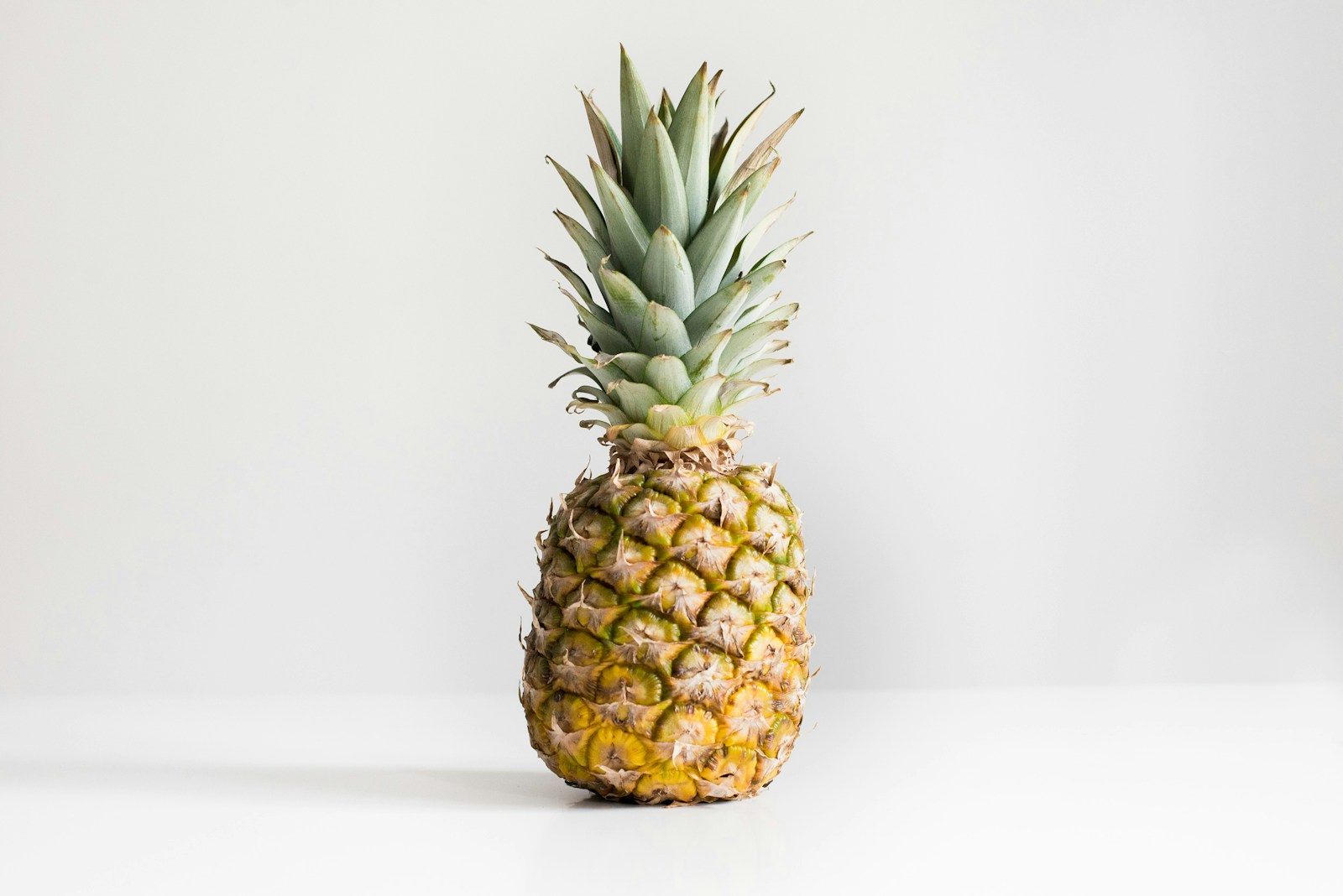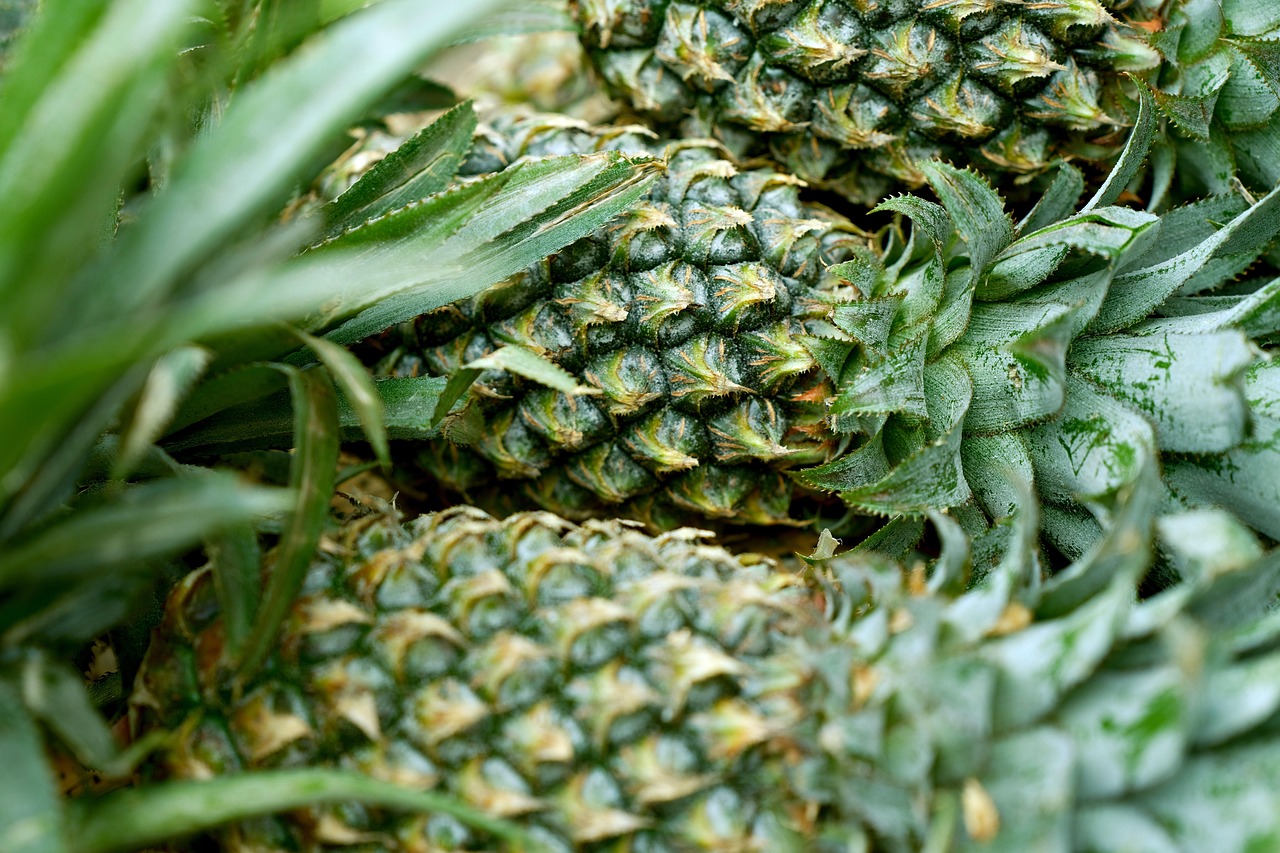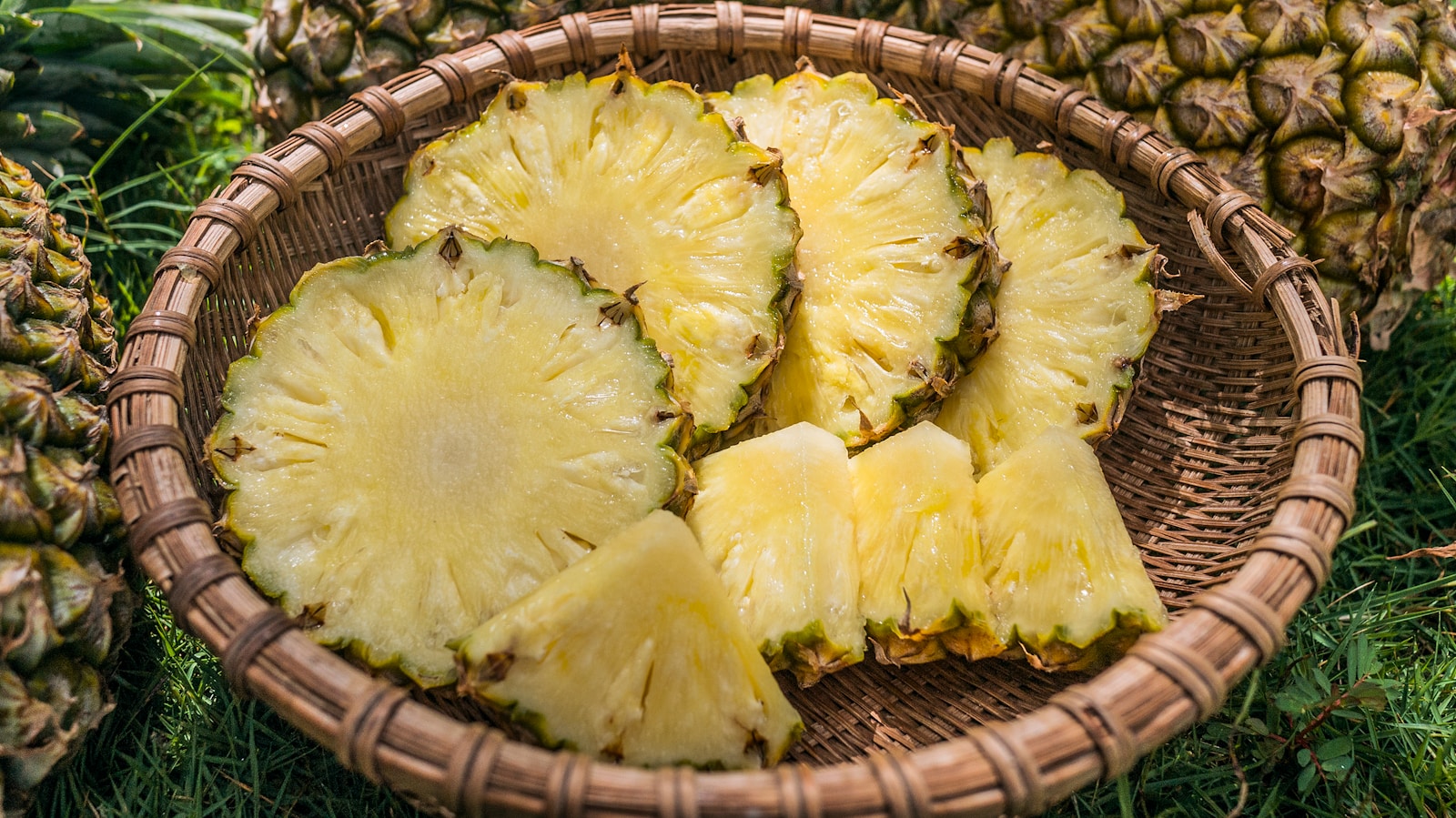When it comes to sharing food with our furry friends, we often wonder which treats are safe and beneficial and which could cause harm. Pineapple, with its sweet and juicy appeal, might catch your dog’s interested gaze. But the question is, can dogs eat pineapple? The short answer is yes, with a few caveats.
This tropical fruit can be a delightful, refreshing treat for dogs when served correctly. However, as with any addition to your dog’s diet, moderation and preparation are key. Below, we’ll break down everything dog owners need to know about feeding pineapple to their pets, including the benefits, risks, and best ways to serve this sweet treat.
Why Pineapple Can Be a Good Treat for Dogs
Pineapples are not just a refreshing tropical fruit, but they also offer several health benefits when given to dogs in moderation. Here are some key advantages of incorporating pineapple into your dog’s diet:
- Rich in Nutrients: Pineapples are packed with essential vitamins like Vitamin C, B6, and important minerals such as manganese. These nutrients support your dog’s immune system, promote energy production, and contribute to strong bones and overall vitality.
- Aids Digestion: Pineapples contain bromelain, a natural enzyme that can help with digestion by breaking down proteins and promoting nutrient absorption. Including small amounts of pineapple in their diet may support a healthy digestive system.
- Boosts Hydration: With its high water content, pineapple can help keep your dog hydrated, especially during hot weather. It’s an excellent way to provide a refreshing treat that tastes great and replenishes fluids.
- Supports a Healthy Coat and Skin: The antioxidants in pineapple, along with its Vitamin C content, play a key role in improving skin and coat health. These nutrients help reduce inflammation and support collagen production, keeping your pup’s coat shiny and healthy.
- Low-Calorie Treat Option: Pineapples are naturally low in calories and can serve as a guilt-free snack for dogs that need to maintain a healthy weight, as long as they are provided in controlled portions.
By offering your dog pineapple in safe quantities, you can enhance their diet with these benefits while delighting them with a tasty, natural treat. Always ensure it is prepared properly and free from the tough core and outer skin.
Why Pineapple Can Be a Healthy Treat for Humans
Pineapples are not only delicious but also packed with numerous health benefits for humans. Here are some of the most notable advantages of including pineapples in your diet:
- Rich in Nutrients: Pineapples are a great source of essential vitamins and minerals, including vitamin C, manganese, and vitamin B6. These nutrients contribute to stronger immunity, improved energy production, and healthy brain function.
- Supports Digestive Health: Pineapples contain bromelain, a natural enzyme that aids in breaking down proteins and improving digestion. This can help alleviate common digestive issues such as bloating and indigestion.
- Boosts Immunity: The high vitamin C content in pineapples strengthens the immune system, helping the body fight off infections and promoting overall health.
- Anti-Inflammatory Properties: Bromelain in pineapples also exhibits powerful anti-inflammatory effects, which can reduce swelling, relieve joint pain, and support recovery from injuries.
- Promotes Healthy Skin: The antioxidants and vitamin C in pineapples can help combat free radicals, reducing signs of aging and improving skin texture. Vitamin C also plays a role in collagen production, which supports skin elasticity and wound healing.
- Improves Eye Health: Pineapples contain antioxidants and beta-carotene, which can contribute to maintaining good vision and preventing age-related macular degeneration.
- Supports Weight Management: Being low in calories and rich in fiber, pineapples help keep you feeling fuller for longer, making them an excellent snack option for those managing their weight.
By incorporating pineapples into your meals or snacks, you can enjoy both their refreshing taste and the array of health benefits they offer. Like with any food, moderation is key to reaping the positives without overindulging.
Can Dogs Have Pineapple in All Forms?
Not all forms of pineapple are equally safe or nutritious for dogs. Here’s a breakdown of the different ways pineapple might be served and whether they’re safe for your furry friend:
Can Dogs Eat Fresh/ Raw Pineapple?
Fresh pineapple is best for dogs. The juicy flesh is loaded with all the essential nutrients without the additives that processed versions often contain. Always remove the spiny skin, hard inner core, and any seeds before giving your dog pineapple.
Can Dogs Eat Frozen Pineapple
On a hot day, frozen pineapple chunks can be a refreshing treat for your dog. This is especially enjoyable during the summer months and can help keep your dog hydrated while offering a cooling snack! Just ensure the chunks are cut into small, bite-sized pieces to avoid choking hazards, especially for small dogs.
Can Dogs Eat Dried Pineapple?
While dried pineapple is safe in very small quantities, it often contains higher concentrations of natural sugar due to the dehydration process. Be cautious about feeding dried fruits, as too much sugar can lead to obesity, digestive upset, or even tooth decay. Look for unsweetened dried pineapple if you choose to offer this option.
Can Dogs Eat Canned Pineapple and Pineapple Juice?
Canned pineapple and its juice are generally not recommended for dogs due to added sugars and preservatives, which can upset your dog’s digestive system. If canned pineapple is the only option available, make sure to thoroughly rinse off any syrup and only serve small portions to your pup.

How to Safely Serve Pineapple to Your Dog
Preparing Pineapple for Your Dog
To ensure pineapple is safe and enjoyable for your dog, follow these steps for preparation:
- Remove the Spiky Skin and Hard Core: The spiny outer skin and tough inner core of pineapple are not digestible and pose a choking hazard. Always discard these parts before feeding your dog.
- Cut into Small, Bite-Sized Chunks: Serve pineapple in small, bite-sized chunks to avoid choking, especially for small dogs. This also allows for better portion control.
- Introduce Slowly: Pineapple is a new food for many dogs, so introduce it gradually. Start with a few small chunks and monitor your dog for any signs of digestive upset, such as diarrhea or vomiting.
How Much Pineapple is Too Much?
While pineapple is healthy in moderation, too much of it can lead to digestive problems due to its high fiber content and natural sugars. A few chunks of fresh or frozen pineapple are enough to treat your dog without overwhelming their digestive tract.
Pro tip for portion control: Stick to the 90/10 rule. 90% of your dog’s daily calories should come from their regular food, while treats like pineapple should make up no more than 10%.
Risks to Keep in Mind When Feeding Pineapple to Dogs
Pineapple offers several health benefits, but it isn’t without risks. Understanding these risks will help you make informed decisions for your dog’s diet.
Digestive Upset
Too much pineapple or improperly prepared pineapple can irritate your dog’s stomach and lead to issues like vomiting or diarrhea. If you notice any of these symptoms, discontinue feeding pineapple and consult your veterinarian immediately.
Allergic Reactions
Although rare, some dogs may have allergies to pineapple. Watch for signs of an allergic reaction, such as itching, swelling, or difficulty breathing. If these occur, seek veterinary care immediately.
Choking Hazards
Never feed your dog pineapple with the outer spiny skin or the hard inner core intact, as these parts can cause choking or severe blockages in your dog’s digestive system.
High Sugar Content
Even natural sugars should be consumed in moderation to avoid long-term health issues like obesity or diabetes in dogs. Dogs with existing weight or diabetes issues should avoid pineapple altogether.
Creative Ways to Add Pineapple to Your Dog’s Diet
If your dog enjoys pineapple, there are plenty of creative ways you can include it in their diet:
Frozen Pineapple Popsicles
Blend pineapple chunks with unsweetened plain yogurt and freeze into molds for a refreshing frozen treat.
Pineapple Toppers for Meals
Add a few diced pineapple pieces to your dog’s regular meal for an extra burst of flavor and nutrients.
Mix with Other Dog-Safe Fruits
Create a dog-friendly fruit salad by mixing bite-sized pineapple chunks with other safe fruits like blueberries or apples.
When to Consult Your Veterinarian
Before introducing pineapple to your dog’s diet, especially if they have a sensitive stomach, speak with your veterinarian. Your vet can determine whether pineapple aligns with your dog’s nutritional needs and any existing health conditions.
Helpful Resources on Fruits Dogs Can and Can’t Eat
Here is a curated list of six helpful resources to better understand which fruits are safe for dogs and which should be avoided:
American Kennel Club (AKC): Fruits Dogs Can and Can’t Eat
https://www.akc.org/expert-advice/nutrition/fruits-vegetables-dogs-can-and-cant-eat/
A detailed guide that breaks down common fruits and vegetables and whether they are safe or harmful for dogs.
PetMD: What Fruits Can Dogs Eat
https://www.petmd.com/dog/nutrition/what-fruits-can-dogs-eat
This resource highlights the potential risks of certain fruits and explains their impact on a dog’s health.
ASPCA’s Poison Control Center
https://www.aspca.org/pet-care/animal-poison-control/toxic-and-non-toxic-plants
Provides a comprehensive list of plants and fruits that are toxic to pets, along with actions to take in case of accidental ingestion.
The Humane Society of the United States
https://www.humanesociety.org/resources/foods-pets-should-never-eat
Includes a section specifically focusing on foods, including fruits, that are dangerous for dogs.
Best Friends Animal Society
https://resources.bestfriends.org/article/fruits-and-vegetables-dogs-can-and-cant-eat
An informative article featuring a simple chart on fruits and vegetables, categorizing them by safe, caution, and unsafe.
Rover.com Blog
https://www.rover.com/blog/can-my-dog-eat-that/
Offers practical advice and answers common questions about various fruits and other foods when it comes to dog consumption.
These resources can provide clear, reliable information to guide you in making safe choices for your furry friends. Always consult your veterinarian if you’re uncertain about introducing new fruits to your dog’s diet.
Can Dogs Eat Pineapple? The Verdict: Pineapple as a Treat for Dogs
Can dogs eat pineapple? Yes—for most dogs, pineapple can be a healthy and delicious treat when served fresh, prepared properly, and given in moderation. Rich in nutrients like vitamin C, manganese, and dietary fiber, this tropical fruit can offer a refreshing way to treat your dog while supporting their overall health.
Remember, each dog is unique, so monitor how your furry friend responds to pineapple and adjust servings as needed. By following the preparation tips and portion guidelines shared above, you can safely add a tropical twist to your dog’s treat menu.
Interested in exploring more dog-friendly treats and fun? Stop by Snouts and Stouts Indoor Dog Park and Bar with your furry friend today!









